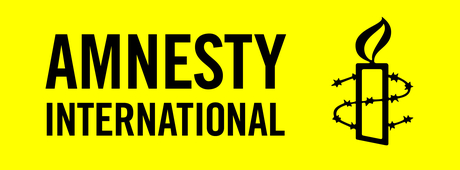OTTAWA – A total of 301 organizations, academics and former politicians from across the country are calling on all levels of government in Canada to take urgent steps to strengthen human rights oversight amid the COVID-19 pandemic.
A total of 157 organizations and 144 individuals – including Indigenous organizations, civil society groups, unions, academics and former politicians– are urging federal, provincial, territorial and municipal governments to adopt robust oversight measures to strengthen human rights protection and guard against potential human rights violations during the current public health crisis.
“Everything about this pandemic – providing treatment, curtailing its spread, dealing with the economic fall-out, ensuring that the needs of marginalized communities are met, and looking ahead to long-term transformative change – is all about human rights. And many of the public health measures being adopted by governments inevitably and necessarily lead to restrictions on other rights,” said Alex Neve, Secretary General of Amnesty International Canada. “With so many essential rights directly at stake, oversight measures are an essential means of maximizing human rights protection and minimizing human rights violations.”
The impact of the COVID-19 virus, and the restrictive measures being adopted in response, disproportionately impact on First Nations, Métis and Inuit communities, Black and racialized communities, the elderly, people living with disabilities, women and children at risk of violence in the home, refugees and migrants, official minority language communities, prisoners, sex workers, people who are living in homelessness or inadequate housing, people who use drugs, precariously-employed workers, people who are marginalized on the basis of gender identity and sexual orientation and other at-risk communities.
All of this comes at a time when the institutions that exist to uphold human rights, including courts, human rights commissions and tribunals, are facing limitations, while other bodies that provide human rights accountability and transparency, like parliamentary and legislative committees, have been suspended.
The 301 groups and individuals are calling for all levels of government to institute stronger human rights oversight of their COVID-19 responses by:
- Ensuring that Indigenous knowledgekeepers, representatives of federal, provincial and territorial human rights commissions, representatives of relevant municipal human rights offices and language commissioners have an official advisory role to special committees, emergency task forces, crisis response working groups and other bodies established by governments to coordinate their response to the COVID19 pandemic.
- Immediately establishing independent human rights oversight committees made up of First Nations, Métis and Inuit representatives from both rural and remote Indigenous communities and urban centres, impacted communities, frontline service providers, human rights advocates, labour representatives, and academics. Those committees would bring an intersectional genderbased plus analysis to their oversight role and report publicly on a regular basis.
“Putting human rights at the heart of COVID-19 responses across Canada, backed up by robust oversight measures, helps strengthen human rights protection across the country at a particularly crucial time,” said France-Isabelle Langlois, Directrice générale of Amnistie internationale Canada francophone. “It is also a powerful way for Canada to demonstrate vital human rights leadership on the world stage, at a time when far too many other governments are ignoring their obligations or taking advantage of the crisis to deepen longstanding violations.”
Background:
A total of 301 organizations and individuals have endorsed this public statement calling for all levels of government in Canada to establish robust human rights oversight measures. The endorsements span a wide range of sectors, including:
- Indigenous peoples’ organizations;
- Civil society groups, including those advocating for human rights, women’s rights and gender equality, the rights of peoples living with disabilities, access to health, civil liberties, free expression, the environment and climate change, anti-poverty, anti-racism, prisoners’ rights, refugees, migrants and immigrants, children, students, sex workers, people using drugs, access to justice, international development, and peace;
- Labour groups;
- Law professors and other academics;
- Faith leaders;
- Former politicians Lloyd Axworthy, Ed Broadbent, Nathalie Des Rosiers and Allan Rock; and
- BC Human Rights Commissioner Kasari Govender
For more information, please contact:
Lucy Scholey, Media Relations, Amnesty International Canada (English branch), 613-853-2142, lscholey@amnesty.ca
Khoudia Ndiaye, Directrice des communications et strategies, Amnistie internationale Canada francophone, 514-766-9766 poste 5230, kndiaye@amnistie.ca






















